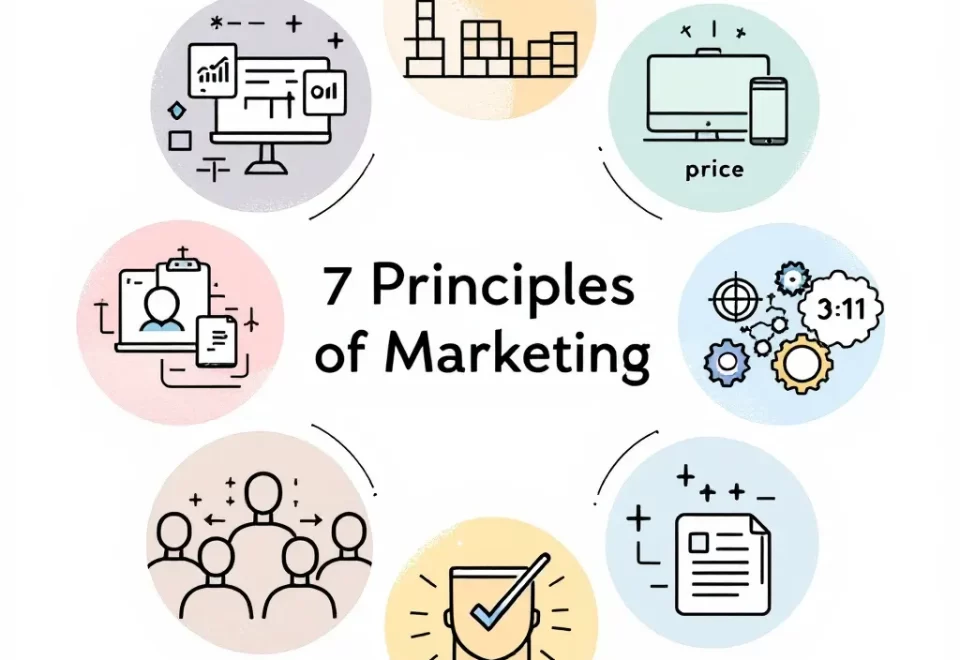Few people scroll to page two on a search engine results page (SERP), so you need to prioritize your rankings for online visibility. To make it to the top of the SERPs, marketers turn to a tactic known as search engine optimization (SEO). A rock-solid SEO campaign enables you to compete with other brands on search engines, monitor your web traffic, and tweak online content strategies for the highest rate of success.
In today’s digital world, a successful business needs to have a strong online presence. Your website needs to rank high in search engine results pages (SERPs). One of the most important ways to achieve this is through Search Engine Optimization or SEO. That’s why this guide focuses and we will show you how to manage a successful SEO campaign. Plus, we’ll provide some top tips on how to track your progress, analyze your competition, and make necessary adjustments along the way.
What is SEO Campaign Management?
In short, SEO Campaign Management is the process of implementing an SEO strategy that covers all of the elements which now influence a websites rankings in the SERPs (Search Engine Results Pages).
SEO campaign management is the process of planning, executing, and monitoring your SEO efforts to achieve specific goals and objectives. It involves setting up campaigns, tracking progress and results, and making necessary adjustments. As search engines evolve, so do the strategies and tactics used in SEO campaign management. A successful SEO campaign management strategy takes into account the latest trends and changes in the search landscape, as well as the specific goals and objectives of your website.
It is known that there are more than 200 SEO ranking factors. However, a leak from Google search algorithm happened in May 2024 and we found out that there were more than 14,000 SEO ranking factors. So, let’s be clear. This is not as easy as it sounds to be on the first page of search engine rankings.
Usually, SEO campaigns are managed by marketing agencies with specialists working on various aspects of the project. However, if you’re running a small business or managing your website, you may not have the resources to hire an agency. In that case, don’t worry! The search engine optimization process can be successfully completed by following a few simple steps. And all of them will be discussed in this comprehensive guide.
What Are the Benefits of SEO Campaign Management?
When done correctly, SEO campaign management can result in several benefits for your business, including:
Boosts your credibility and online visibility
SEO campaign management can help boost your business’s credibility and online visibility. Optimizing your website for search engines can improve your chances of appearing in the top search results for relevant keywords. This, in turn, can help increase traffic to your website and improve your brand’s online visibility. In a search engine-driven world, appearing in the top search results is vital for any business that wants to succeed online. Trust and credibility are two of the most important factors in your SEO efforts.
In digital marketing, your goal is to ensure your potential customers see you as an authoritative and trustworthy source of information. If your potential customers don’t trust you, they will not likely do business with you. To build trust and credibility, your website must offer quality content relevant to your industry. Your content should be well-written, accurate, and informative. It should also be updated regularly to ensure that it remains relevant.
Generates leads and sales
One of the ultimate goals of SEO campaign management is to generate leads and sales for your business. By appearing in the top search results for relevant keywords, you can increase the chances of potential customers finding your website and doing business with you. SEO campaign management can help you target the right keywords and optimize your website to convert traffic into leads and sales. Those web pages optimized for lead generation are more likely to appear in the top search results, which can help you increase leads and sales for your business. When your business can generate leads and sales from its SEO efforts, it can help you achieve long-term success.
Identifies opportunities and potential problems
SEO campaign management can also help you identify opportunities and potential problems with your website. By analyzing your website’s traffic and performance, you can identify areas where your website needs improvement. For example, you may find that your website is not ranking well for certain keywords or is not generating as much traffic as you would like. By identifying these problems, you can then take steps to fix them so that your website can perform better in the future.
A few things that can help you identify potential problems with your website include.
– Check your website’s Google Analytics account to see where your traffic is coming from and what keywords people use to find your website.
– Checking your website’s search engine rankings to see where it ranks for important keywords.
– Doing a competitor analysis to see what other websites in your industry are doing well and what you can learn from them.
Are you looking for an effective way to plan and manage your SEO campaigns?
Contact Growth Hackers
Saves time and money
SEO campaign management can also save you time and money. By managing your SEO campaign, you can focus on other aspects of your business while someone else takes care of the technical details. This can free up your time to focus on running your business rather than worrying about the details of your SEO campaign. In addition, by outsourcing your SEO campaign management, you can save money on the costs of hiring someone to do it for you. When you use SEO tools, you will also better understand what you are doing. Compare the amount of time and money you spend on your SEO campaign with the results you get. The bottom line is that if you want to save time and money, then you should consider outsourcing your SEO campaign management.
Supports content marketing efforts
SEO campaign management can also support your content marketing efforts. By optimizing your website for search engines, you can help your content be found by potential customers. In addition, by using keyword-rich titles and descriptions, you can make your content more likely to be found by search engines. Usually, what happens is that small business put all their emphasis on SEO without really knowing what it is. As a result, they end up not getting the full benefits of an effective SEO campaign. But to get the most out of your SEO campaign, you need to understand what it is and how it works.
Maximizes PPC campaigns
If you need immediate results, and to immediately test keywords consider adding paid search (Also call PPC management, PPC advertising, Bing Ads, Google Ads or Google AdWords) to your digital marketing strategy. In addition, consider the demographics you are targeting. Mobile users have different surfing habits to desktop users, and other demographic factors, such as age groups, affect how people engage with your brand.
The pay-per-click (PPC) landscape has changed dramatically in the past decade. No longer is it about blindly bidding on keywords and hoping for the best. To be successful with PPC today, you need to take a more strategic approach. Different types of paid search platforms have different auction models, and you need to understand how each one works to succeed. In addition, you need to know how to create effective ads that will grab the attention of your target audience and get them to click through to your website.
When you run PPC advertising campaigns, make sure you target commercial and transactional keywords, not informational, navigational or educational keywords as you don’t want to waste money and bid on non-converting keywords.
That’s where SEO campaign management comes in. By managing your SEO and PPC campaigns together, you can get the most out of your budget and ensure your website gets the visibility it deserves. No matter your budget size, campaign management can help you get the most bang for your buck.
How To Do SEO Campaign Management Successfully
Now that you know what SEO campaign management is and why it’s important let’s take a look at how to do it successfully. Here are a few tips to get you started:
Set clear goals for your SEO strategy
Before you can start working on your SEO campaign, you need to set some clear goals. What do you want to achieve with your SEO efforts? Do you want to increase your website’s traffic? Improve your conversion rate? Get more leads? Suppose you want to increase your website’s traffic. In that case, you need to set some measurable goals, such as increasing your website’s traffic by X% in the next X months. As the SEO strategies may vary according to the business, You can either follow an inbound marketing approach, a performance-based marketing approach, or a combination of both. The main aim is to get your website to rank higher in the SERPs to get more organic traffic.
Do keyword research
First, you need to do some keyword research. Keywords are the backbone of an SEO campaign. People search for keywords, and in order to get that search traffic on your website, you need to know what they are so you can optimize for them. On the surface, keywords are simply the words you want to rank on the first page for, such as “wagyu burgers San Francisco” for a chill burger joint in SF or “how to fix leaky pipes” for a plumbing company.
Keyword research is one of the most important aspects of SEO. You need to find the keywords your target audience uses to search for the products or services you offer. You can use several keyword research tools, such as Google Keyword Planner, SEMrush or Ahrefs.
Also, dive into keyword research to identify opportunities to incorporate search terms with a high search volume. Implementation phase With a roadmap in hand, you can do some groundwork before launching your campaign. The components of your implementation phase will vary based on your business’s goals, but you can think of this as the preparation phase.
Once you’ve found the right keywords, you need to include them in your website’s content, titles, and meta tags. If your content marketing strategy is in place, ensure to include the keywords in your blog posts and other content. Suppose your target audience is most interested in the latest trends in SEO. In that case, you can create blog posts and other content around those topics and use the right keywords to attract them to your site.
However, when placing keywords on your website, you must be cautious because stuffing can frustrate the SEO campaign strategy. You must ensure that your web pages have several keywords that are relevant to your niche. People’s search behaviors are different and may depend on what they look for on the internet. You must align your website content with what your target audience is searching for in the market.
Optimize your website for on-page SEO
On-page SEO is all about optimizing your website’s content and code for search engines. This includes optimizing your title tags, metatags, and header tags, using keyword-rich titles and descriptions, and internal linking to improve your website’s hierarchy. Any activities that impact SEO but don’t actually occur on your website, including referring domains, inbound links, brand mentions, social media interactions, and influencer marketing.
You might think this is a trivial factor, but URLs that contain keywords have 45% higher click-through rates than do URLs without keywords, Moreover, try to put your keyword at the beginning of your title tag. This is because search engines like Google or Bing put more emphasis on terms that show up earlier on your meta tag. Also, try to include your keyword within the first 150 words of your content for the same reason. Including keywords early on signals to search engines like Google that the word is important.
Start by looking at your website’s code and ensuring it is clean and well-organized. Then, look at your website’s content and ensure it is relevant, keyword-rich, and informative plus all of your internal links are working properly. Many website owners mistake stuffing their websites with too many keywords to improve their search engine ranking.
However, this can have the opposite effect and can result in your website being penalized by search engines. When you target keywords, be sure to use them in a way that sounds natural and is relevant to the content on your website. Because every google update & fresh content algorithm change, a new optimization challenge is born, and that needs to be tackled using the best practices.
Optimize your website for off-page SEO
Off-page SEO is all about optimizing your website for search engines by building high-quality backlinks. A backlink is simply a link from another website to your website. The more high-quality backlinks you have, the higher your website will rank in the search engines. Backlinks — sometimes called inbound links, backlinks are hyperlink tabs to your webpage from other sites. Backlinks matter because they alert search engine algorithms that you’re providing high-quality information, which often strengthens your credibility and site visibility on SERPs.
There are several ways to build backlinks, such as writing articles and submitting them to article directories, submitting your website to web directories, and participating in forums and discussion boards. You can start building backlinks by creating shareable content and submitting it to social media sites such as Twitter, Facebook, and LinkedIn. A few things that you should keep in mind while doing off-page SEO are:
1. Write quality content: The first and the most important thing to do while doing off-page SEO is to write quality content. Content is still the king when it comes to SEO. The better your content is, the more likely people will link to it.
2. Promote your content: Once you have written quality content, the next thing to do is to promote it. You can promote your content by submitting it to social media sites and participating in forums and discussion boards.
3. Create backlinks: The last and most important thing to do while doing off-page SEO is to create backlinks. As mentioned earlier, backlinks are simply links from other websites to your website. The more high-quality backlinks you have, the higher your website will rank in the search engines.
This is where the concepts like link juice or domain authority come in. When other sites link to your content, it acts as a “vote” of approval. It demonstrates to search engines that people find your content valuable and interesting. Without backlinks, Google won’t trust you.
Increase your organic traffic with effective SEO campaign management!
Monitor your SEO campaign regularly
Now that you’ve planned out your campaign strategy, done your research, created great content marketing, and established your authority through backlinks, you might think your job is over. But search engine optimization isn’t a one-and-done project, it’s an ongoing effort. You have to check on your work to make sure that you’re actually reaching your targets.
Once you have launched your SEO campaign, it is important to monitor its progress regularly. There are many SEO benchmarks you should track on a regular basis. This will help you make necessary changes and adjustments to ensure your campaign is on track. You can use several tools to track your SEO campaign’s progress, such as Google Analytics and semrush.com. As the search engine results pages (SERPs) frequently change, keep an eye on your rankings and ensure that your website is still visible to potential customers. Whenever you feel that your SEO campaign is not performing as well as it should, don’t hesitate to make changes to improve its effectiveness.
Make adjustments to your SEO strategy as needed
Now that you’ve planned out your SEO campaign strategy, done your research, created great content marketing, and established your authority through backlinks, you might think your job is over. But search engine optimization isn’t a one-and-done project, it’s an ongoing effort.
Tracking SEO metrics is a must. Monitoring your keyword rankings will show you whether your SEO efforts are paying off. And—if you notice a drop in rankings—where you need to adapt your strategy or specific pages on your site. If something isn’t working, change it. If keywords aren’t driving the traffic you’re looking for, switch from generic keywords to high-search intent, long-tail keywords. If your content isn’t ranking, try a new posting schedule. Continually adjust based on the data you notice during monitoring.
Your SEO strategy may need to be adjusted as your business grows and changes. As your website gains more content and backlinks, you may need to revise your keyword list and update your on-page optimization. If you add new products or services, you must create new landing pages and optimize them for the appropriate keywords. As your business expands, it is important to keep your SEO campaign up to date to continue attracting new customers and maintain your search engine visibility.
Monitoring engagement metrics like average engagement time, bounce rate, and click-through rate reveals how well your content is resonating with audiences. And whether you need to make adjustments. To do this, use a tool like Google Analytics . It can provide a wealth of data about your users and how they interact with your website’s content.
Google Search Console (GSC) on the other hand helps you understand your organic traffic and the keywords you’re ranking for. In addition, you have many other SEO tools available such as SEMrush, Ahrefs, Pro Rank Trackers and more.
Technical SEO is all about making technical changes to your site that make it easier for search engines to discover, understand, and store your content.
Once you have been running your SEO campaign for a while, it is important to take a step back and evaluate your results. Look at your website traffic and conversion rates to see if there has been any improvement since you started your campaign. If you do not see the desired results, it may be time to change your strategy. You should also calculate your return on investment (ROI) to see if your SEO campaign is worth the money and effort you put into it. If your ROI is low, you may need to reconsider your strategy or invest more money into your campaign.
Hire an SEO professional
If you don’t have the time or expertise to manage your SEO campaign, you may want to hire an SEO professional. A good SEO consultant can help you choose the right keywords, optimize your website, work on on-page SEO, link building, technical SEO, local SEO and track your results. They can also make recommendations on improving your campaign if it is not performing as well as you’d like. While an SEO consultant can be a valuable asset, it is important to find one that you can trust, and that has a good track record of success. Be sure to get referrals and read online reviews before hiring anyone.
You might be wondering: offshoring vs outsourcing, what’s the best for your business? Both options can be viable but this depends on your needs, experience and processes. If handling people, freelancers or agencies with a different time zone isn’t a problem for you, offshoring will be fine but if you prefer to have a team that has a similar schedule as yours, nearshoring will make more sense.
Creating a successful SEO campaign requires careful planning, execution, and regular monitoring. By following these tips, you can create an effective SEO campaign that will help you attract more visitors to your website and generate more sales. If you need help getting started, contact an experienced SEO strategist or consultant who can assist you with every process step.
Final Words on SEO Campaign Management
The success of any SEO campaign depends on many factors. While there are dozens of brand-specific components in an SEO campaign, the core strategies include researching search traffic, identifying relevant keywords, and analyzing competitors. These steps help teams develop consistent, high-quality, and high-converting content.
But if you keep the above tips in mind, you’ll be well on managing a successful campaign. Always track your progress, analyze your results, and adjust your strategy as needed.
With a little hard work and dedication, you can achieve great things with your SEO campaign. Always start with keyword research to find the right keywords to target, create high-quality content optimized for those keywords, build links to your site, and track your progress. With a little effort, you can see some great results.
Hopefully, learning all about search engine optimization has you fired up to try it for yourself. In a world of evolving algorithms and shifting audience interests, there’s always room for an SEO strategy to improve. Any SEO expert will tell you to always keep your eyes open for the next big change, or even an incremental update.
So, at last, we would say that if you want to achieve great success in your SEO campaign, then never give up and keep trying new things. Also, don’t forget to track down your progress and always analyze your results. These are the two most important keys to help you unlock the door to success. After all, “Rome wasn’t built in a day.”
But planning a well designed SEO campaign is no easy feat. Well, no worries. We are here to tell you all you need to commence a successful SEO campaign for your company and achieve the high levels of organic search traffic you want.
Growth Hackers is a one-stop shop SEO agency helping businesses from all over the world grow. There is no fluff with Growth Hackers. We help entrepreneurs and business owners successfully implement custom SEO strategies, generate qualified leads, optimize their conversion rate, gather and analyze data analytics, acquire and retain users and increase sales. We go further than brand awareness and exposure. We make sure that the digital marketing strategies we implement move the needle so your business grow, strive and succeed. If you too want your business to reach new heights, contact Growth Hackers today so we can discuss about your brand and create a custom growth plan for you. You’re just one click away to skyrocket your business.










